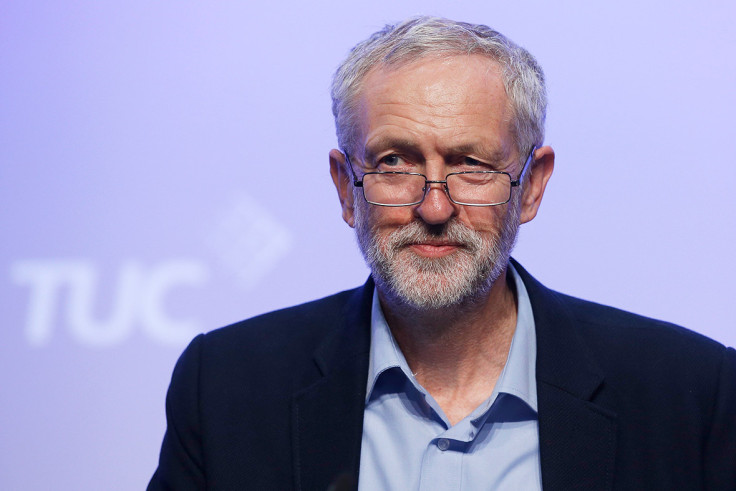Margareta Pagano: Corbynomics and the City could be a match made in heaven for Jeremy Corbyn
Jeremy Corbyn doesn't do up his top button. He wears oddly matching trousers and jackets and polyester shirts of the sort that maths teachers wore in the 1970s. And, we now know, he either has such an awful singing voice that he daren't open his mouth in public or won't sing the National Anthem on grounds of republican principles.
Indeed, we know more about Corbyn's sartorial and singing habits than we do about the cut of his economic policies that have been, by and large, dismissed by the financial press as a rerun of the unreconstructed leftie high-spending comrades we thought had fizzled out under Lady Thatcher and drowned forever by Tony Blair.

Predictably, big business has also been swift to knock down some of Corbyn's bigger ideas such as nationalising the railways, the banks and the energy companies. No surprise there; turkeys don't vote for Christmas.
But dig a little deeper under the first flush of Corbynomics and you'll find the new Labour leader and his shadow ministers at the Treasury and business departments have some fascinating ideas on finance and banking, which would tickle the fancy of the unlikeliest of bedfellows in the Square Mile.
In fact, there are even a few politicians on the unreconstructed right such as Lord Tebbit who have admitted privately they rather like the way Corbyn is unfashionably leading from the front rather than relying on focus groups for his ideas.
Here are a few of those policies that have yet to see the light of day. For starters, Corbyn's shadow chancellor, John McDonnell, supports a mix of fundamental reforms to the financial system that are also backed by the likes of the former chancellor, Lord Lawson, and economist John Kay. Hardly lefties.
McDonnell recently wrote that a new Labour government – or is that an old Labour government? – would introduce a full-blown Glass-Steagall system to separate retail banking from investment banking, a move backed by Lawson and many in the City. Even Lord King, the former governor of the Bank of England, was originally for proper separation before the coalition gave in to the banking lobby and gave the green light to the softer Vickers proposals for ring-fencing.
Full-scale separation is one of the trickiest debates of our times. On one side of the fence, there are solid grounds for splitting banks along the lines of Glass-Steagall. Yet there are also good reasons for ring-fencing as a middle-way as so much of the financial services industry has become so morphed that the cost of separation alone could be deadly to the industry – and the customer.
Along with the coalition, the last Labour opposition rolled over to join with the banking lobby to argue against a full split, so it's heartening to hear that such a complex subject is still up for debate.
Auditing reforms
McDonnell also suggests radical reform of the "failed auditing regime", a move the City's accountancy regulators such as the Financial Reporting Council are trying themselves to improve following the industry's ineptitude revealed during the banking crisis and, more recently, the black hole in Tesco's accounts.
Perhaps the most intriguing of the new shadow chancellor's ideas is that there should be wider forms of company and enterprise ownership and control, which would include "public, co-operative and stakeholder ownership". He doesn't spell out what this means but presumably – or should I say hopefully – he is encouraging more employee-share ownership along the lines of the John Lewis partnership. If so, this is a big and good change in Labour thinking since traditionally the party – and the unions – have been against broader ownership.

On an equally controversial topic, McDonnell also proposes legislation to replace short-term shareholder value with long-term sustainable economic and social responsibilities as the primary objective of companies – an aim most diligent CEOs and fund managers would find hard to argue against.
Of course the devil is in the detail. How Labour aims to achieve any of these new financial proposals is missing from Corbyn's eight-page 2020 economic manifesto. But he will need to fill in the gaps and would find surprising support from many in the City – and not just the token left-wingers – if he bothers to go hunting for fresh and meaty ideas in a Corbyn-style "prawn cocktail" offensive.
But that's the big question. Will Corbyn seek out such support? And will the money men even bother to have him in for lunch? I phoned a few old City hands to find out and the response was fascinating: one Labour-leaning financier said Corbyn should be arresting bankers not eating with them, while a Tory supporter said he's welcome to lunch anytime he wants (name supplied on request).
Don't forget, he said, the City loves governments that spend big on infrastructure and sees no reason why the Bank of England shouldn't print money to buy bonds issued by such long-term revenue operators such as housing associations or health trusts and that the present chancellor is missing a trick by not using low interest rates to help finance more infrastructure projects.
As he reminds us, the City always does well under Labour governments. But he had a word of advise for Corbyn: "He should drop the constant 'anti-austerity' carping and say instead that his polices are 'pro-recovery'." Much more fashionable.
Margareta Pagano is a business journalist who writes for the Independent and the Financial News. Follow her on Twitter @maggiepagano.
© Copyright IBTimes 2025. All rights reserved.






















